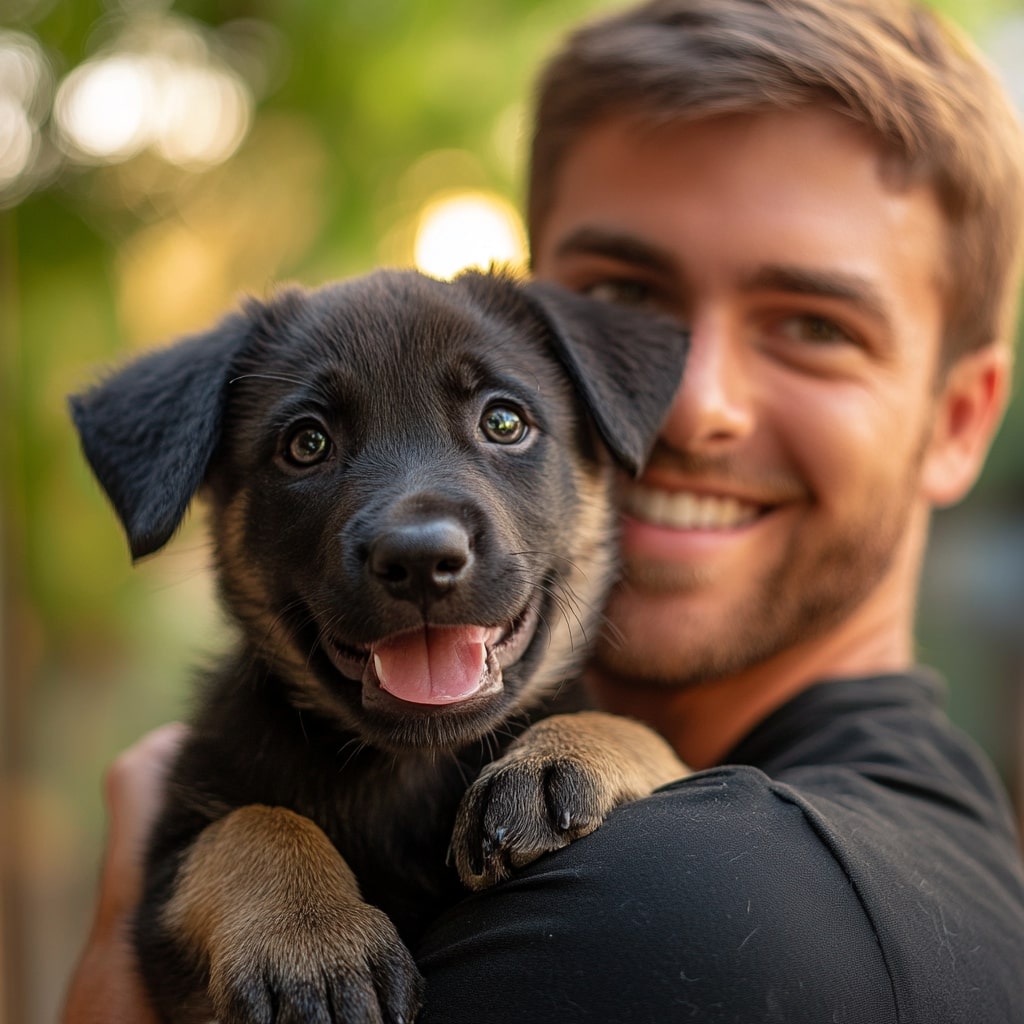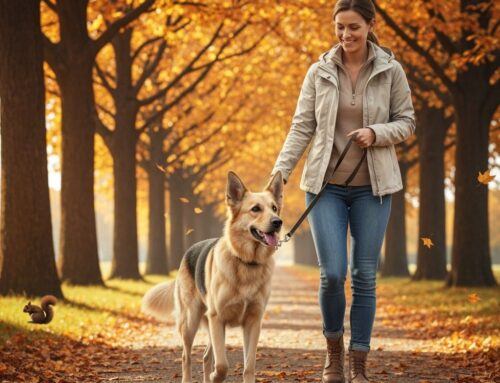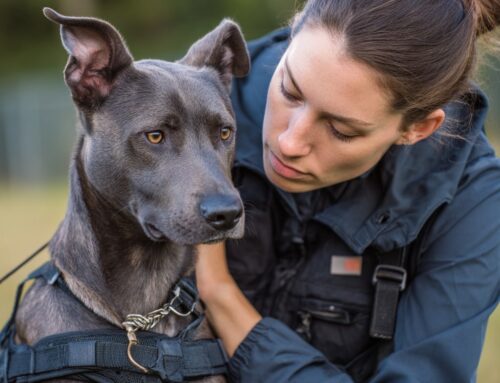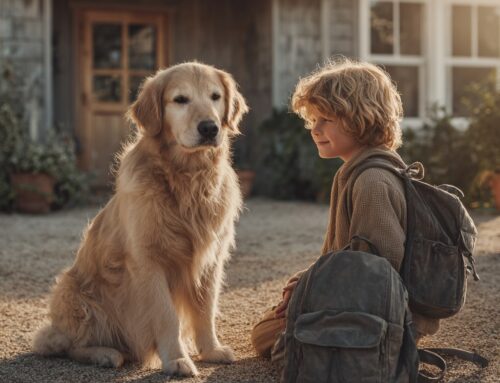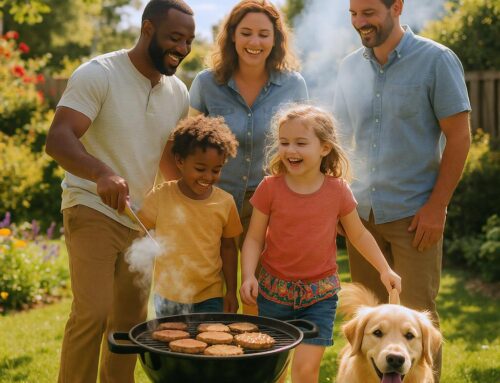Puppies are bundles of joy, energy, and curiosity, but they also come with responsibilities. As a new puppy owner, it’s crucial to prepare yourself for the journey of raising a well-behaved and happy dog. Whether you’re a first-time dog owner or adding another furry friend to your family, these tips for new puppy owners will help set you and your puppy up for success whether it’s just at-home training or getting professional help from trainers, these tips will help you and your pup in the long run.
1. Prepare Your Home for Your Puppy
Before your puppy arrives, create a safe and welcoming environment for them. Young puppies are naturally curious and love to explore the new puppy home, so remove any hazards such as loose wires, toxic plants, or small objects they might swallow. Consider setting up a puppy-proofed area with baby gates or playpens where they can safely play and rest while you’re house training.
Must-Have Supplies:
- Crate and bedding
- Food and water bowls
- Puppy food (consult your breeder or vet for recommendations)
- Chew toys and teething toys
- Collar, leash, and ID tag
- Puppy pads or outdoor potty supplies
2. Focus on Potty Training Early
Potty training is one of the first challenges new puppy owners face. Consistency and patience are key when it comes to puppy toilet training. Establish a regular schedule for bathroom breaks, especially after meals, naps, and playtime. Take your puppy to the same spot each time so they associate it with going potty.
Pro Tip: Reward your puppy with praise or a small treat immediately after they go potty in the correct spot. Avoid punishment for accidents, as it can create fear and confusion. Instead, clean up accidents calmly and thoroughly to remove any lingering odors that might encourage them to go in the same spot again. Consistency and patience are key—remember, your puppy is still learning and needs time to understand what’s expected of them.
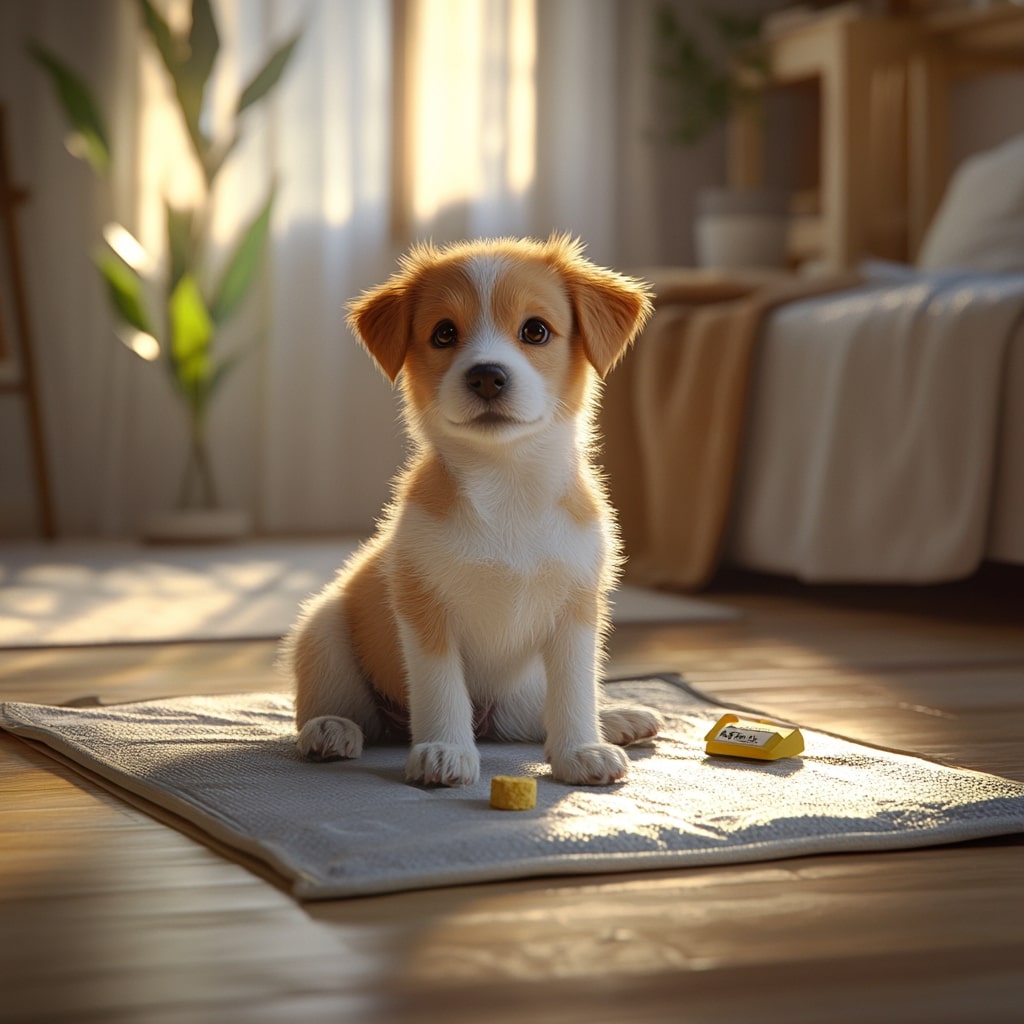
3. Socialization Is Crucial
The first few months of a puppy’s life are a critical period for puppy socialization. Expose your puppy to a variety of people, animals, environments, and experiences in a positive and controlled way. This helps prevent fear-based behaviors later in life.
Ideas for Socialization:
- Walks in the neighborhood
- Puppy play dates or puppy classes
- Visits to pet-friendly stores
- Gentle introductions to household sounds like vacuum cleaners or doorbells
4. Establish a Routine
Puppies thrive on routine, which helps them feel secure and understand expectations. Create a daily schedule that includes feeding times, potty breaks, playtime, training sessions, and naps.
Why It’s Important:
A consistent routine makes it easier to manage your puppy’s behavior and speeds up training progress. Puppies are creatures of habit, and a predictable schedule helps them adapt to their new environment more quickly. By sticking to a routine, you’ll reduce confusion and stress for both you and your puppy, making the transition into your home smoother and more enjoyable.
5. Begin Basic Training Immediately
Start teaching your puppy basic commands like “sit,” “stay,” “come,” and “leave it” as soon as they come home. Use positive reinforcement methods, such as treats, toys, or praise, to encourage good behavior.
Key Training Tips:
- Keep sessions short (5-10 minutes) to match most puppies attention span.
- Always end on a positive note to keep them motivated.
- Stay patient and consistent—puppies learn at their own pace.
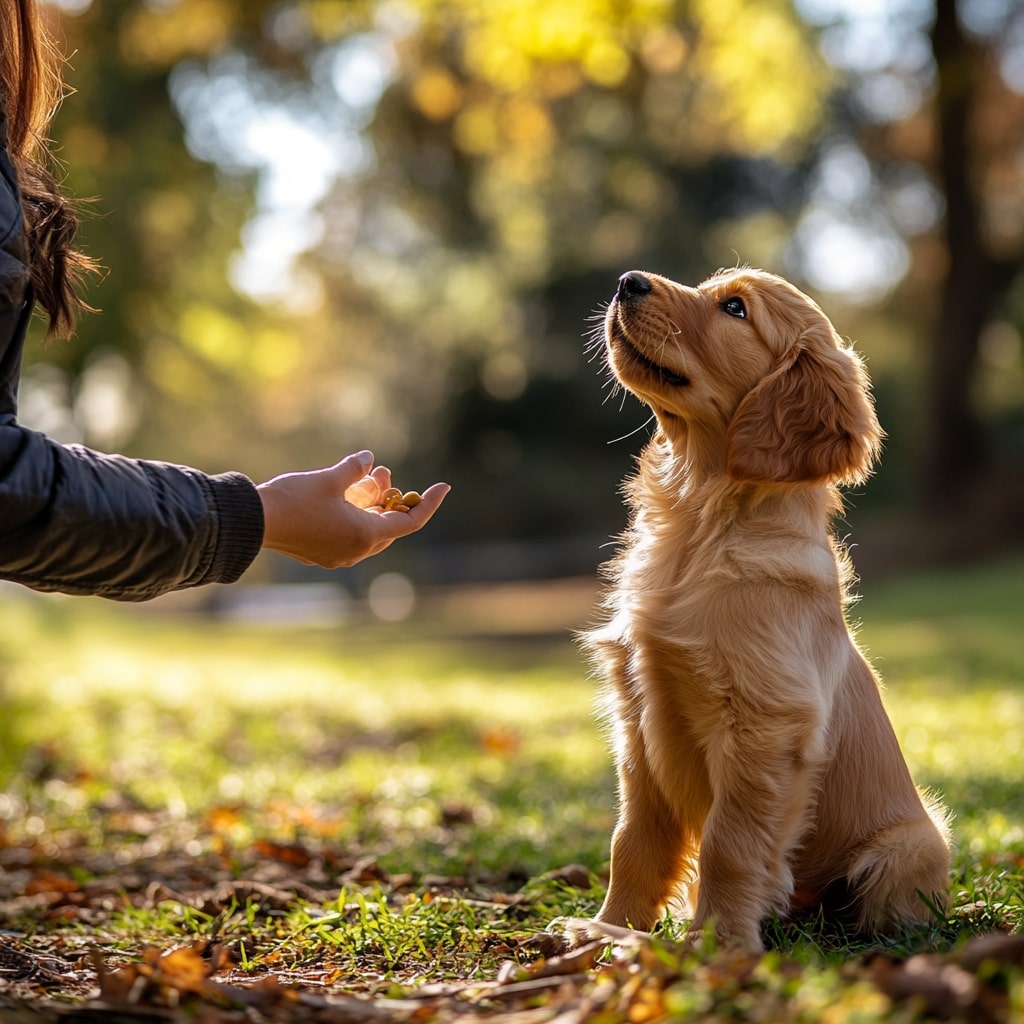
6. Handle Teething Gently
Puppies go through a teething phase that can lead to excessive chewing. To save your furniture, shoes, and hands from their tiny teeth, provide plenty of chew toys. Look for toys designed specifically for teething puppies.
Soothing Remedies for Teething:
- Freeze a wet washcloth for them to chew on.
- Offer cold carrots or specially designed frozen dog treats.
- Redirect their chewing to an appropriate toy whenever they start nibbling on something they shouldn’t.
7. Schedule Regular Vet Visits
Your puppy’s health should be a top priority. Schedule a vet appointment shortly after bringing your new puppy home to ensure they are up-to-date on vaccinations, deworming, and flea prevention. Discuss spaying or neutering options with your veterinarian as well.
Questions to Ask Your Vet:
- What diet is best for my puppy’s breed and size?
- How often should I groom my puppy?
- What behaviors should I watch for that indicate illness?
8. Start Crate Training Early
Crate training provides your puppy with a safe and comfortable space to rest. When done correctly, it can also aid with potty training and prevent destructive behavior when you’re not home.
Tips for Successful Crate Training:
- Make the crate inviting with soft bedding and toys.
- Never use the crate as a punishment.
- Gradually increase the time your puppy spends in the crate.
- Always let them out for potty breaks before and after crate time.
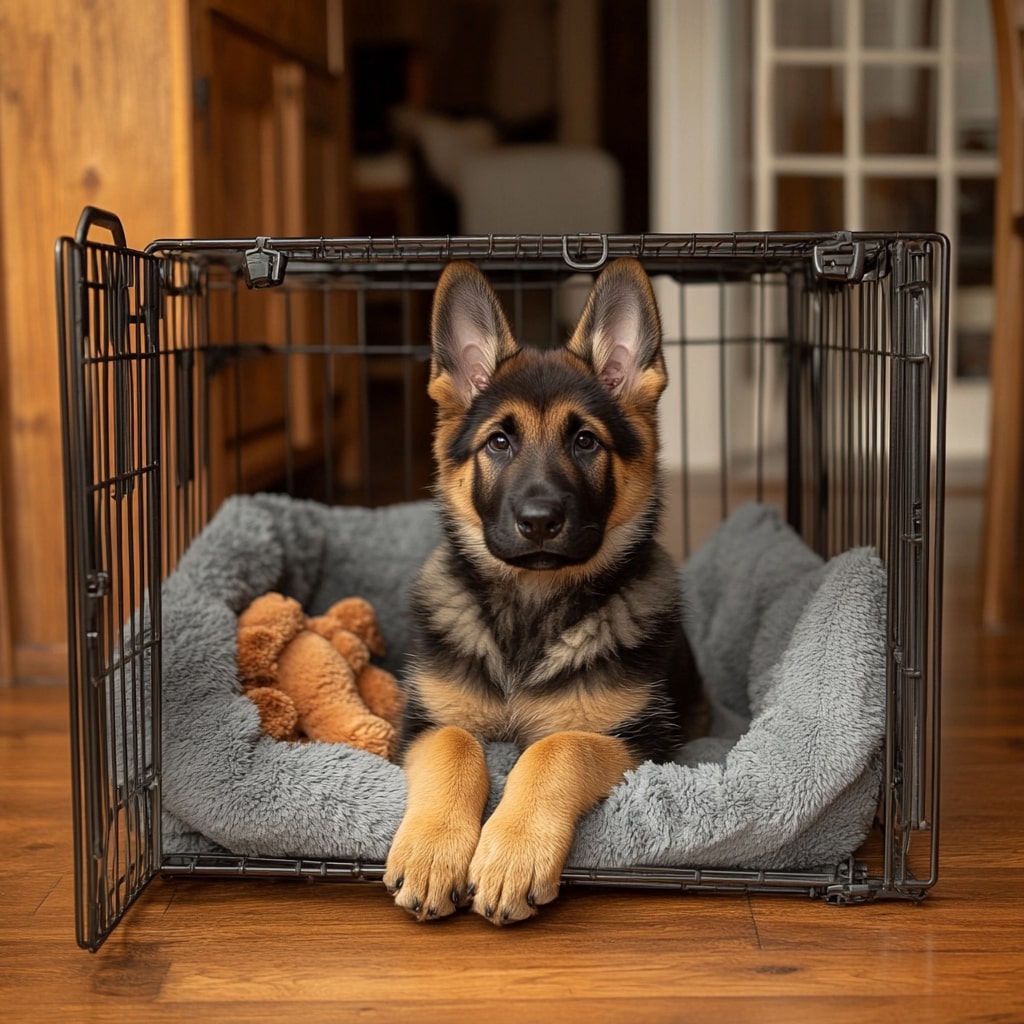
9. Provide Mental and Physical Stimulation
Puppies have boundless energy and need both physical exercise and mental stimulation to stay happy and well-behaved. Bored puppies often resort to destructive behaviors, so keep them engaged.
Fun Activities:
- Short walks and play sessions
- Puzzle toys and treat-dispensing games
- Basic training exercises that challenge their mind
10. Be Patient with Behavioral Hurdles
Puppies aren’t perfect, and they’re bound to have moments of mischief. Whether it’s biting, barking, or jumping on guests, address these behaviors calmly and consistently.
Common Behavioral Issues:
- Biting: Redirect to a chew toy and use a firm “no” when needed.
- Jumping: Teach an alternative behavior like “sit” when greeting people.
- Whining: Avoid giving attention to whining unless it’s a sign of a legitimate need (e.g., potty break).
If you’re struggling with specific behaviors, consider enrolling in a puppy training class or consulting a professional dog trainer.
11. Understand the Importance of Bonding
Your relationship with your puppy is the foundation for all training and behavior. Great tips for new puppy owners is to spend quality time together, whether it’s through cuddles, play, or training. Building trust early on will lead to a lifelong bond.
Ways to Bond:
- Gentle grooming sessions
- Learning new tricks together
- Exploring new environments like dog parks as a team
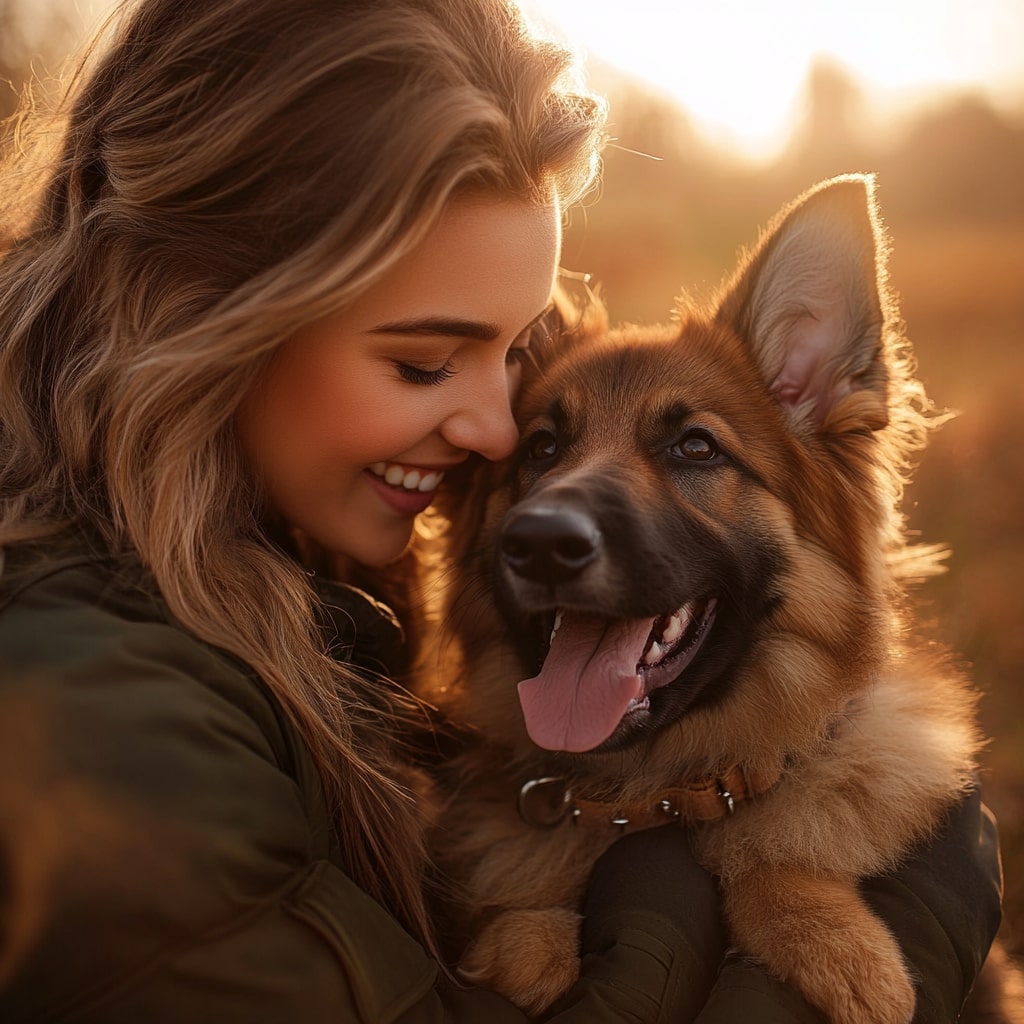
12. Puppy-Proof Your Schedule
Puppies require time, attention, and consistency. Great tips for new puppy owners is to adjust your schedule to accommodate their needs, especially during the first few weeks. If you work long hours, consider hiring a pet sitter or asking a trusted friend to help.
Why It’s Important:
Creating a schedule that prioritizes your puppy’s needs ensures they feel secure and reduces the chances of developing anxiety or unwanted behaviors. Puppies thrive on consistent care, so carving out time for feeding, potty breaks, play, and training is essential. Even small adjustments, like taking a mid-day break to check on them or arranging for someone to assist, can make a big difference in their development and happiness.
13. Focus on Proper Nutrition
Your puppy’s growth and health depend on a balanced diet. Choose a high-quality puppy food suitable for their breed, size, and age. Consult your veterinarian for specific recommendations for what your puppy eats.
Feeding Tips:
- Stick to a consistent feeding schedule.
- Avoid feeding table scraps, as some human foods are toxic to dogs.
- Transition to adult dog food as your puppy grows (consult your vet for timing).
14. Plan for Grooming Needs
Start introducing your puppy to grooming routines early, so they become comfortable with the process. Regular grooming not only keeps them clean but also strengthens your bond.
Essential Grooming Practices:
- Brush their coat regularly to reduce shedding.
- Trim their nails to prevent discomfort or injury.
- Clean their ears and brush their teeth weekly.
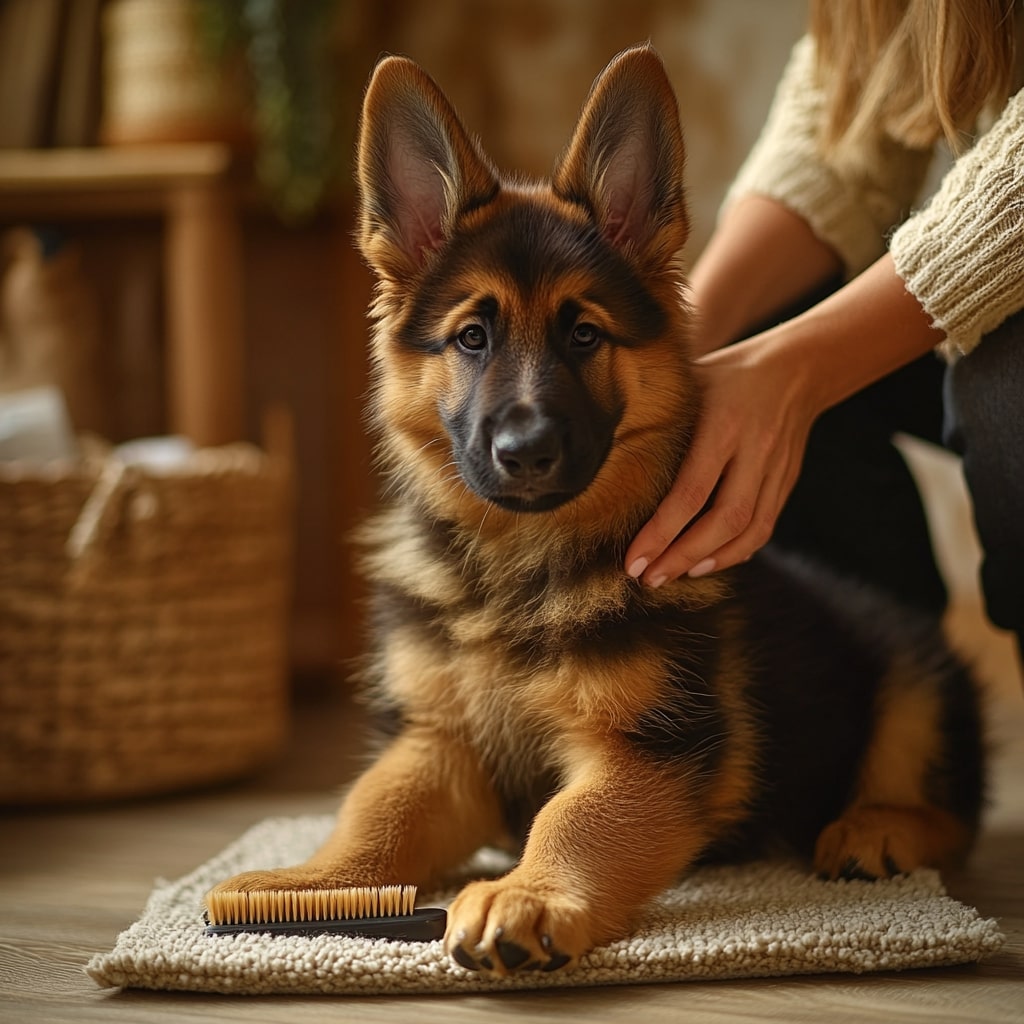
15. Stay Consistent and Positive
Consistency and positivity are essential in raising a puppy. Set clear rules and enforce them consistently, but always focus on rewarding good behavior rather than punishing mistakes.
Why Positivity Matters:
Dogs respond better to encouragement and praise, which helps build trust and strengthens your bond. Positive reinforcement makes training sessions more enjoyable for your puppy, encouraging them to repeat good behaviors. It also helps reduce stress and fear, creating a safe environment where your puppy feels comfortable learning and growing. Over time, this approach fosters a confident and happy dog who looks to you for guidance and support.
Final Thoughts and Tips for New Puppy Owners
Raising a puppy requires patience, love, and dedication. By following these tips, you can create a nurturing environment that allows your puppy to grow into a happy, well-behaved companion. Remember, every puppy is unique, so be flexible and enjoy the journey of getting to know your new best friend.
If you’re struggling with specific challenges even after reading these new tips for new puppy owners, professional trainers like Performance K9 Training and Boarding can provide expert guidance to help your puppy reach their full potential. Performance K9 Training and Boarding offers the Yappy Puppy Program, specifically designed to help new puppy owners navigate this exciting yet challenging phase with puppy training.
The Yappy Puppy Program focuses on building a strong foundation for your puppy. It’s perfect for new puppy owners looking to set their furry friend up for long-term success. For more information on how Performance K9 Training and Boarding can help you and your puppy, schedule a free consultation today. Your puppy’s journey toward becoming a well-mannered and happy companion starts here!
Don’t Let the Winter Blues Get Your Dog Down
Winter doesn’t have to mean dull days for your dog. With a mix of indoor and outdoor enrichment activities and the help of professional training, you can ensure your dog stays happy, healthy, and mentally stimulated throughout the season.
If you’re ready to take your dog’s training to the next level, contact Performance K9 Training and Boarding today to schedule a free consultation. Let’s work together to make this winter a season of growth, learning, and fun for you and your furry friend!



